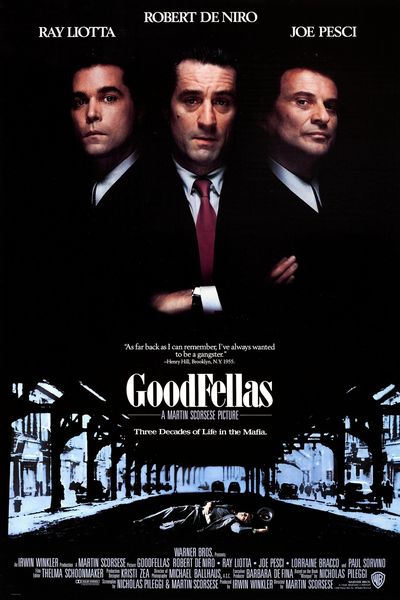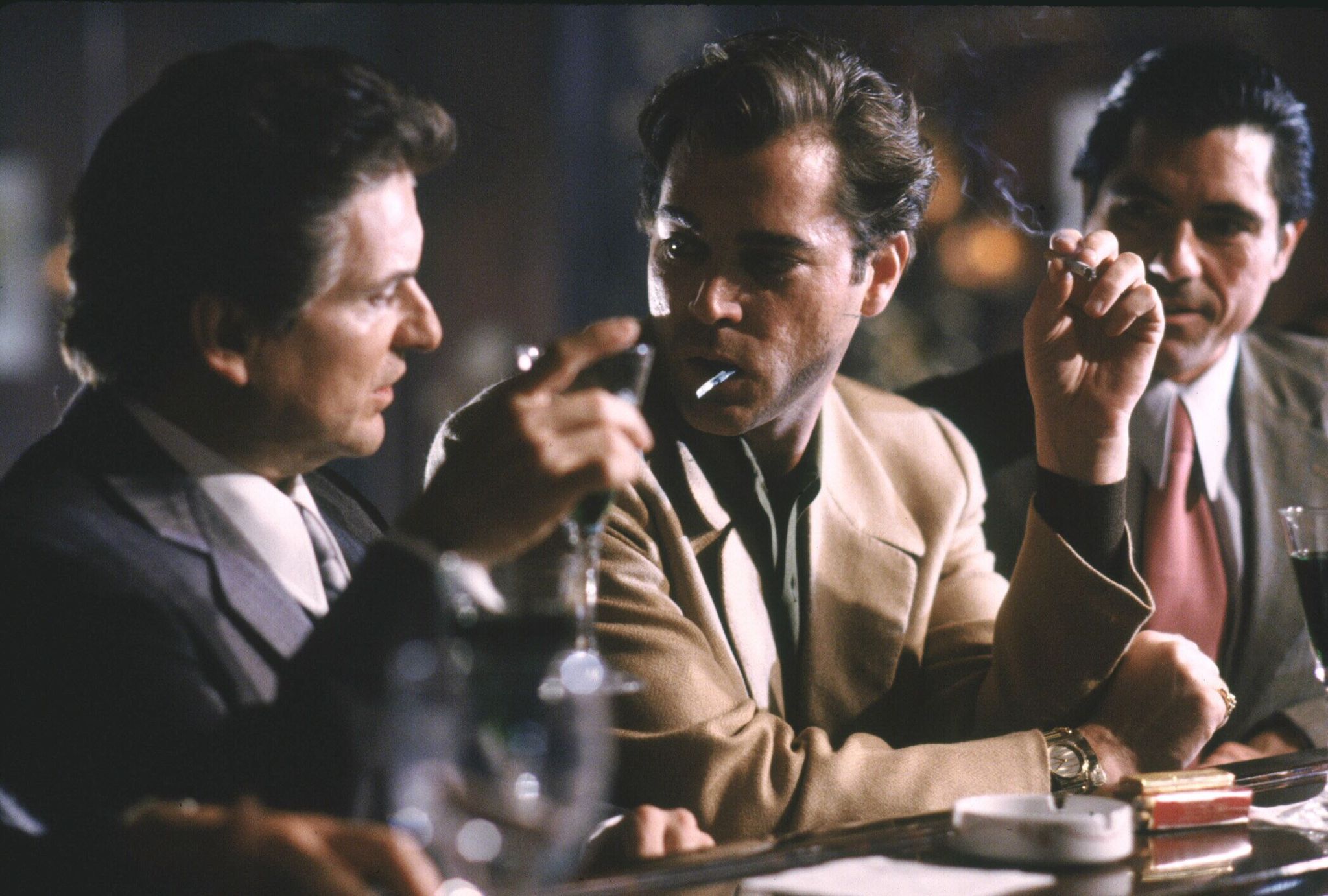“Goodfellas” (1990)

Content and Significance of “Goodfellas” (1990)
Martin Scorsese’s Goodfellas (1990) is a quintessential American crime film that delves deep into the world of organized crime, offering a gritty and immersive portrayal of the mob life. Based on the true story of Henry Hill, as recounted in the book Wiseguy by Nicholas Pileggi, the film stands as a masterclass in storytelling, direction, and character development.
Plot Summary:
Goodfellas follows the rise and fall of Henry Hill (played by Ray Liotta), a young man from Brooklyn who becomes entangled in the criminal underworld. From his early days as an aspiring gangster, through his involvement in a series of high-profile heists, to his eventual betrayal and testimony against his former associates, Hill’s life story is a riveting exploration of loyalty, power, and corruption.
The film also features notable performances by Robert De Niro as James “Jimmy the Gent” Conway and Joe Pesci as Tommy DeVito. Their characters, alongside Hill, form a complex web of relationships marked by ambition, violence, and treachery.

Themes and Significance:
- The Allure of the Mafia: Goodfellas captures the seductive nature of the criminal lifestyle. The film vividly portrays the glamour and excitement that initially attract Hill to the mob, showcasing the perks of wealth and power. However, it also reveals the inherent dangers and moral decay that accompany this lifestyle.
- Realism and Authenticity: Scorsese’s direction, coupled with Pileggi’s screenplay, delivers an unflinching look at organized crime. The film’s realistic portrayal of violence and its raw, documentary-like style contribute to its authenticity. The use of long tracking shots and a distinctive narrative voice enhances the immersive experience.
- The Corruption of the American Dream: At its core, Goodfellas explores how the pursuit of the American Dream can lead to moral and personal downfall. Hill’s rise from a working-class background to a feared mobster highlights the corruption that often accompanies unchecked ambition.
- Loyalty and Betrayal: The film intricately examines the concepts of loyalty and betrayal within the criminal world. As Hill’s life unravels, the complexities of his relationships with other mobsters come to the forefront, emphasizing how trust and loyalty are constantly tested in such a treacherous environment.
- Impact on Cinema: Goodfellas has left an indelible mark on the crime genre and filmmaking as a whole. Its innovative narrative techniques, such as breaking the fourth wall and using voice-over narration, have influenced countless films and directors. Scorsese’s portrayal of mob life has set a benchmark for authenticity and storytelling in cinema.












